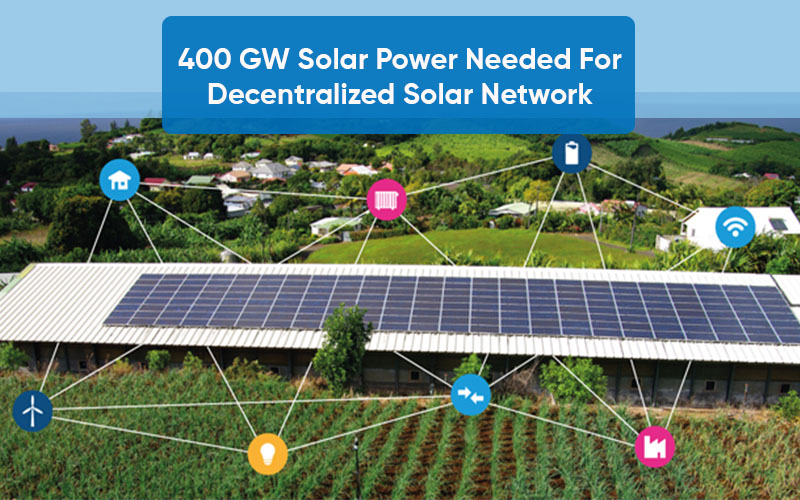The agriculture industry is gradually on the rise. But, the over-dependence on electricity companies and the scope of droughts in some fertile states of the nation have caused a dip in the yields, increasing the prices of the vegetables and thus hampering the financial plan of an Indian domestic household. The government of India, especially the Ministry of Agriculture in collaboration with the Ministry of Natural Resources and Energy, has proposed a plan where the process of decentralization will be implemented for the drought-affected regions. “The decentralized solar network across India will induce solarization to all substations which power the agricultural lands and thus, will bring a new lease of life in the agricultural sector.”, said Saurabh Kumar, Managing Director at Energy Efficiency Services Limited.
Energy Efficiency Service Limited, abbreviated as EESL is the world’s largest public Energy Service Company owned by the Government of India in a trilateral partnership with three PSU giants, National Thermal Power Corporation Limited (NTPC), Rural Electrification Corporation (REC) and Powergrid. This organization was set up to facilitate and implement innovative business models, in addition, to execute projects which can curb consumption and put a restriction on costs. Recently, in the 2020 budget, Honourable Finance Minister Of India, Mrs. Nirmala Sitharaman, adjudged EESL as an IPO, which increased the net worth from $1.27 billion to a staggering $12 billion dollars.
In an exclusive interview with the ET Energy World, Saurabh Kumar told, “If you look at the decentralized solar market, the aggregate is very large and if it has to be implemented across India, it requires a build-up of around 400 GW capacity to solarise all agricultural substations across the country. The company has achieved major milestones in improving energy efficiency over the past 10 years including areas like lighting, agriculture, buildings, e-mobility, and smart metering.”
EECL has been working on the focused areas of the government clean India initiative which aimed at increasing the penetration of clean energy in the overall energy mix. According to the claims by the EESL, greenhouse gas reductions have been decreased by 46 billion tonnes, while the total energy savings are valued at 58 billion units. This had proved the ultimate decimations in energy procured by the organization.
Kumar, further clarified, “ The thing which has not been talked about very well so far is decentralized gas-based cooling. It could reduce the load on the grid and wastage of energy.”
Do give our blog a read for all your solar-related questions. You can also check out other interesting updates on solar on our Facebook page (facebook.com/zunroof)
Reach out to us by filling the form below:

